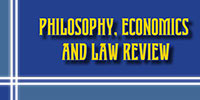Oleksii SHEVIAKOV
D.Sc. in Psychology, Professor (Dnipropetrovsk State University of Internal Affairs), Ukraine
ORCID iD: orcid.org/0000-0001-8348-1935
shevyakovy0@gmail.com
Iryna BURLAKOVA
D.Sc. in Psychology, Professor (Dnipropetrovsk State University of Internal Affairs), Ukraine
ORCID iD: orcid.org/0000-0002-6043-9544
burlahova22irina@gmail.com
Oleksandr KRASILSHIKOV
Ph.D. (Pedagogy), Professor (School of Health Sciences, University Sains Malaysia), Malaysia
ORCID iD: orcid.org/0000-0001-7575-1026
Researcher iD: I-1730-2012,
olek@usm.my
UDC 519
DOI :10.31733/2786-491X-2021-2-38-47
Keywords: temporality, experience of specialists, development of sports development strategy, higher achievements of designing of the system of training of athletes
Abstract. Ignoring the subject of the study of the temporality of experience in the training of athletes is understandable, impoverishes the possibilities of social design. The requirement of the present in the philosophical understanding of the difficult study and application of experience, its use in the social design of sports training. Turning to the analysis of research conducted in recent years, we draw attention to a rather narrow range of publications on the study and application of experience in the tasks of its use in the design of social systems.
It is necessary to determine the role of studying and using the experience of leading specialists, proving that the individual experience of specialists is an important element in developing a modern reform strategy and creating a system of training athletes.
The aim of the article was to analyze the philosophical and sociocultural context of using the experience of training athletes of the highest level of skill in the temporality of experience (transfer it to the future), ie a new, desirable system of sports in developing Ukraine.
In our study, temporality was used in the context of identifying, evaluating and summarizing the individual experience of its bearers when designing a new system of sports of the highest achievements in Ukraine. The action of the construct unfolds in time space.
Research has shown that the essence of psychological – pedagogical competence of a specialist in the field of sports is revealed through the constant replenishment of their knowledge and their adaptation to physical culture and sports; knowledge of the construction of physical culture and pedagogical process as an object of design; systematic description and explanation of problems that arise in the field of sports, in terms of science (epistemological function); ability to apply modern psychological and pedagogical research technologies in the physical culture and pedagogical process.
During the transition of an athlete from one stage to the next in his sports career, his responsibility and influence as an active subject to achieve a competitive result are constantly growing. This must be taken into account, first, during the training of sports coaches. And, secondly, to use coaches during the further improvement of the system of training athletes.
References
- Barchuk, V. (2011). Grammatical category of temporality: semantic-structural aspect. Linguistics. 2011. 6, 64-76. (in Ukrainian).
- Gadamer, H. (2018). Truth and Method: Basics of Philosophical Hermeneutics, http://yanko.lib.ru/ books/philosoph/gadamer-istina_i_metod.pdf. (in Russian). Zynchenko, V. (2015). Endowable global strategies of strategic transformation and insight into context of critical theories. Antropologichni vymiry filosofs’kih doslydzhen’. К 7, 50-63. (in Ukrainian).
- Syn’jaev, S. (2017). Theoretical foundations of the formation of pedagogical competence of a specialist in the field of physical culture and sports. Izvestija VGPU. Pedagogicheskie nauki. Volgograd. 2017. 1, 45-50. (in Russian).
- Sharunenko, Yu. (2010). Pedagogical conditions of training highly qualified athletes at the present stage. Аvtonomija lichnosti, 1. Moscow, 138-141. (in Russian).
- Shelling, F. (1987). System of transcendental idealism, 1. Moscow, 227-489. (in Russian).
- Nilgun Vurgun, Ferudun Dorak, Murat Ozsaker, Sevil Uludağ. Flow Experience And Performance: A Study of Elite Turkish Handball Players. Journal of Physical Education and Sport. (JPES) 16(2), 2016, 88, 562-568.
- Ravikumar, R., Thakur, D., & Choudhary, H. (2017) Social engineering of societal knowledge in livestock science: Can we be more empathetic? Vet World 10(1), 86-91. Rutherford, A. (2017). Skinner and Technology’s Nation: Technocracy, Social Engineering, and the Good Life in 20th Century America. Hist Psychol, 20, 290-312, https://www.bioportfolio.com/resources/pmarticle/1722695/B-F-Skinner-and-Technologys-Nation-Technocracy-Social-Engineering-and-the-Good.html.pdf
- Self-stigma experiences among older adults with mental health problems residing in long-term care facilities: a qualitative study. Your world. Prejudice free, 2017, https://www.ditchthelabel.org/mental-health-stigma. pdf
- Socially-driven persuasive health intervention design: Competition, social comparison, and cooperation, Health Informatics Journal, 2018, https://www.ncbi.nlm.nih.gov/pubmed/29801426.pdf
